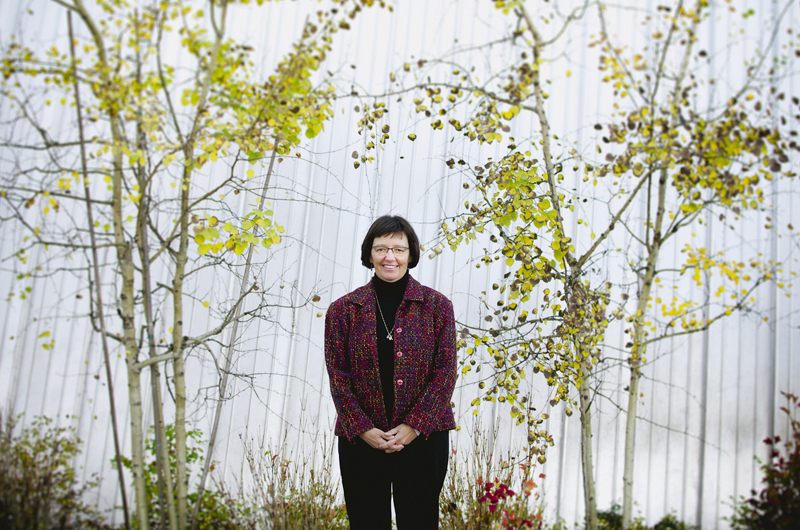When Lucy Kaako first arrived in Edmonton in 2010, after emigrating from Uganda to Ontario six years earlier, she moved into an apartment in the west end. Feeling confined in the small space, with no yard for gardening and few reasons to get out of the house, Kaako joined the yard share program hosted by the West End Food Hub Alliance (WEFHA). The program pairs homeowners, who have extra yard space, with apartment dwellers wanting to grow their own food as a part of WEFHA’s efforts to combat food insecurity. For Kaako, though, it’s provided a whole range of benefits. “It’s providing me an opportunity to be out and about, and meet people. I’ve socialized, and been able to be active, and even grow my own vegetables,” she says.
Food insecurity impacts a wide swath of Edmontonians in different ways. It could be the university student on her own who hasn’t yet learned how to cook, the single father who struggles to afford to feed his kids, or the new immigrant who doesn’t live near a grocery store. It’s a complex issue, and that’s why the Jasper Place Wellness Centre, Jasper Place High School, Trinity United Church and the Wecan Food Basket Society of Alberta realized it would take more than one organization to tackle it. Together, they formed WEFHA, and with the support of Edmonton Community Foundation (ECF), they’re aiming to increase access to healthy food for those living in Meadowlark and surrounding neighbourhoods.
The alliance came out of a “listening project” hosted by the Trinity United Church in 2013, building on a longstanding relationship with the Jasper Place Wellness Centre and the realization that simply turning their extra land into a garden wouldn’t be enough to address the deeply-rooted issues that contribute to food insecurity. “We knew it was important to have other parts of the community engaged with us, and just growing food wasn’t going to solve food insecurity,” says Debbie Hubbard, a member of the Trinity United congregation and one of the organizers behind WEFHA.
At the same time, Edmonton Vital Signs, a joint effort by ECF and the Edmonton Social Planning Council to identify and address issues that impact the city, selected food security as the area they wanted to focus on in 2013. In conjunction with the report that compares local data to national statistics, ECF launched its Vital Signs grant initiative and put out a request for grant applications. “There were many more applications than funding available, so the committee focused on projects that addressed two key aspects of food security: the production of local food and improving access to healthy affordable food for people with barriers,” says Craig Stumpf-Allen, ECF’s Director of Grants and Community Engagement. “They were also seeking projects that were creative, with a new approach to food security in Edmonton, had strong collaborations, and were supporting skill development.”
WEFHA had all of those things. The organization was selected to receive $40,000 a year for three years, allowing it to hire an animator – a grassroots organizer who facilitates local action and activism. Since 2013, the organization has grown its yard share program and developed growing space at the Trinity United Church in partnership with Hosanna Lutheran Church and two private yard owners. They also host a series of “Hospitality Cafs” that allow residents to meet, enjoy meals together and discuss topics related to food. In the long term, the alliance plans to establish a community food centre similar to those found in Toronto and elsewhere in Ontario, but for West Edmonton residents like Lucy Kaako, WEFHA is already having a positive impact.
